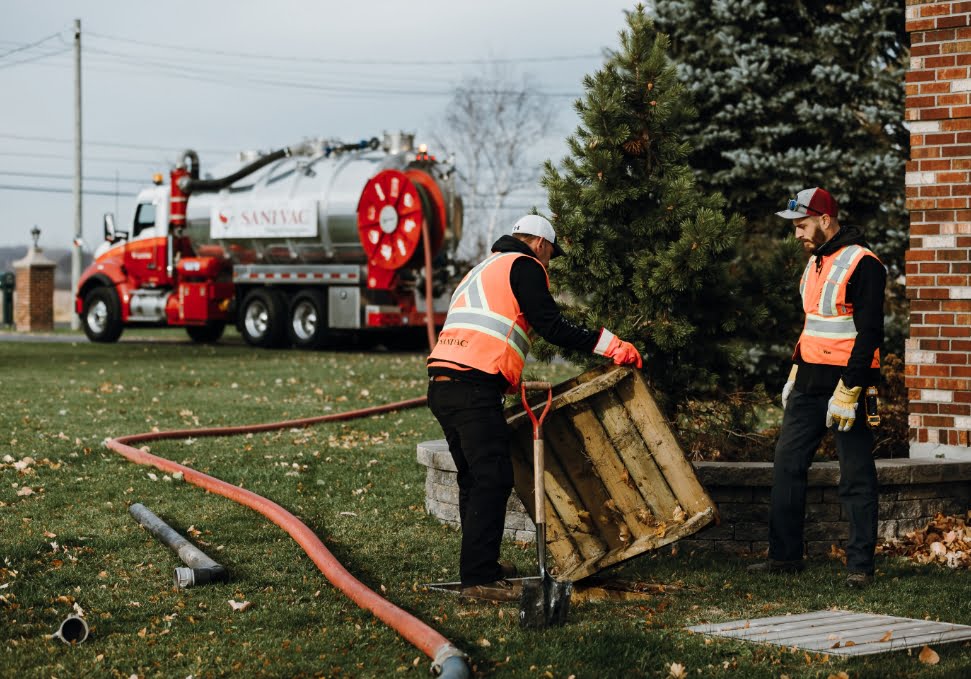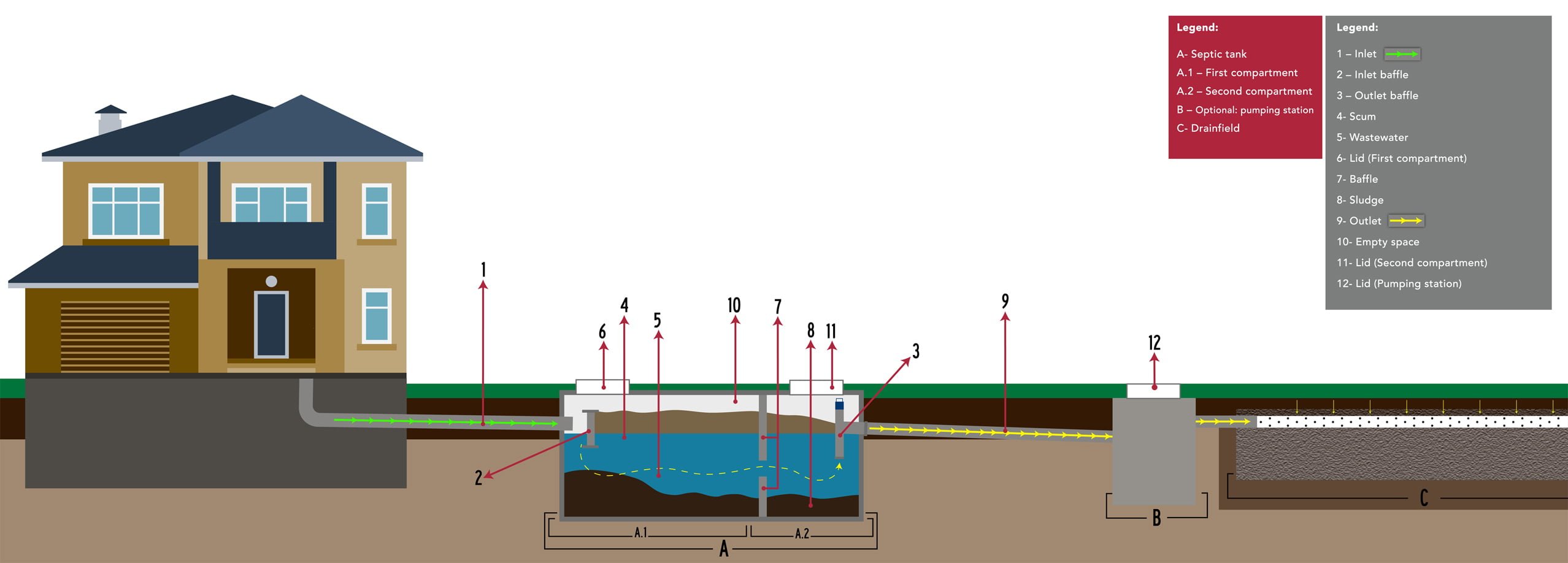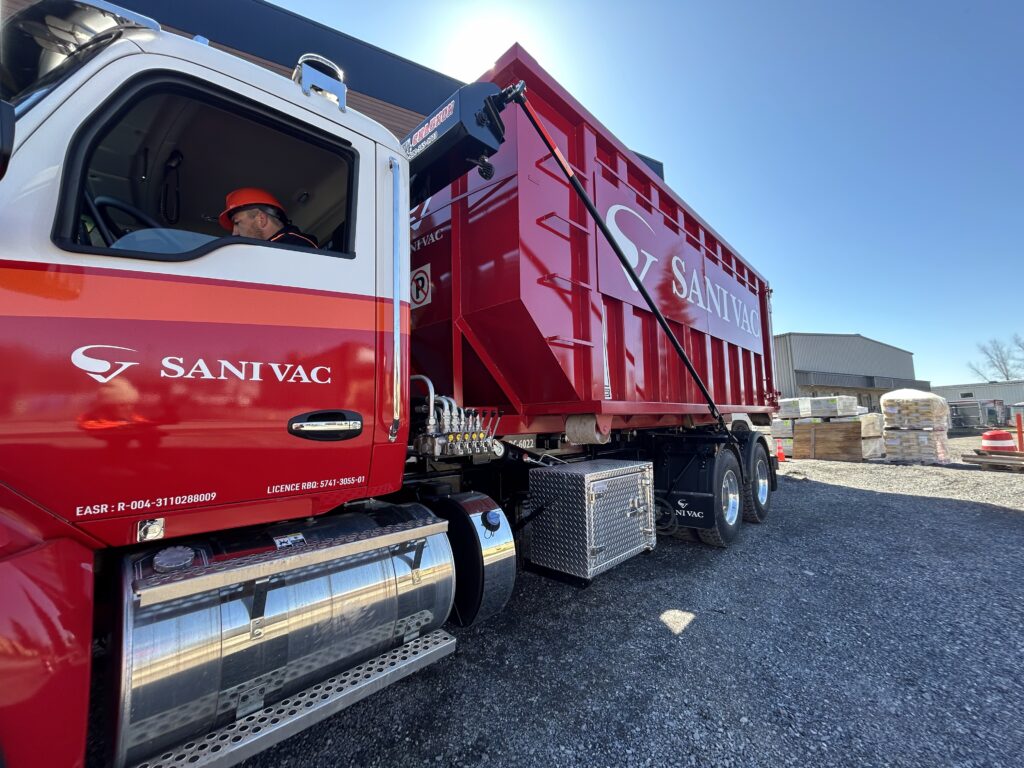
A house that cannot be connected to a public sewer system must have a septic tank to collect domestic wastewater. The septic tank reduces solid and organic matter trough settling and anaerobic processes. The first compartment allows the settling and accumulates deposits and scum, only the liquid moves to the second compartment where it continues its settling before going to the septic drain field.
You must empty your septic tank at least once every two years in order to comply with the Regulation respecting wastewater disposal systems for isolated dwellings Q-2, r.22.
Why trust Sanivac?
24/7 Emergency service for all of our customers
Scheduled reminders every 2 years
Professional service which includes a thorough visual inspection
A comprehensive report detailing our recommendations on every visit
Disposal of sludge at a MELCC approved site
Strict environmental policy
Experienced technicians
New and well-maintained trucks designed for selective emptying
Skilled workers
We are committed to providing you with the best service, be it through our skilled workers, our neat trucks and our performing equipment. We aim to provide the most professional service, completed in 15 minutes. This is made possible by our team, consisting mainly of experienced people. We train our new employees through apprenticeship to guarantee our expertise in this field. Our service includes an inspection to ensure that everything is working properly and we provide you with a written recommendations on how to maintain the condition of your septic tank.

Tips on How to Care for your Septic System
Tips for proper septic tank maintenance :
- Never neglect the frequency of emptying your septic tank. Once every 2 years is not a luxury and is the law.
- Keep the amount of grease and cooking oil discharged into your sinks to a minimum.
- Do not dump chemicals or cleaners into your septic tank. They destroy the bacterial flora.
- Do not use additives to reduce sludge. Let nature do its work.
- Install a pre-filter to preserve the life of your leaching field.
- Clean your prefilter thoroughly before winter and when the snow melts to avoid blockages.
- Never install or use a garbage disposal in sinks.
- Use very thin toilet paper.
- Space out your water consumption (bath, shower, washers and dishwashers).
- Never flush tampons, condoms, Q-Tips, wet wipes, diapers, cat litter, etc. down the toilet.
- Keep the septic tank lids accessible at all times (no dirt, patio, snow, etc. over the lids)
Tips before winter sets in :
- Check that the water level in the septic tank is below the inlet and outlet pipes.
- Clean the prefilter.
- Flush toilets to ensure that everything is flowing well into the septic tank.
- Use pegs to identify the lids.
- Make any necessary repairs, such as leaking pipes.
- Do not remove snow from the surface of the septic tank or septic drain field.



